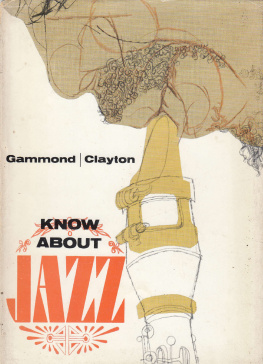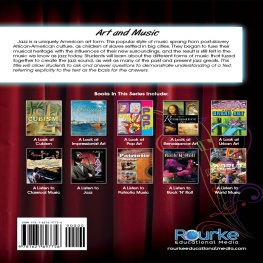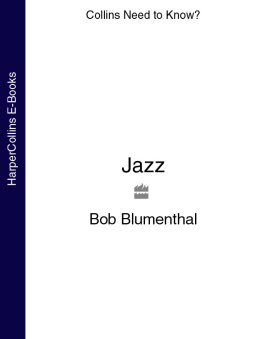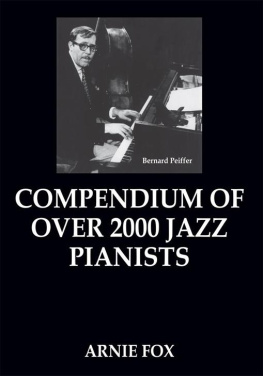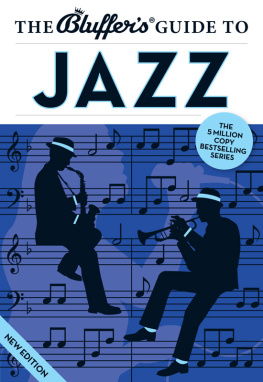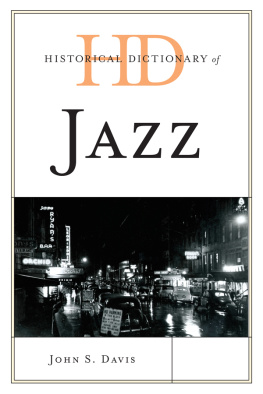Contents
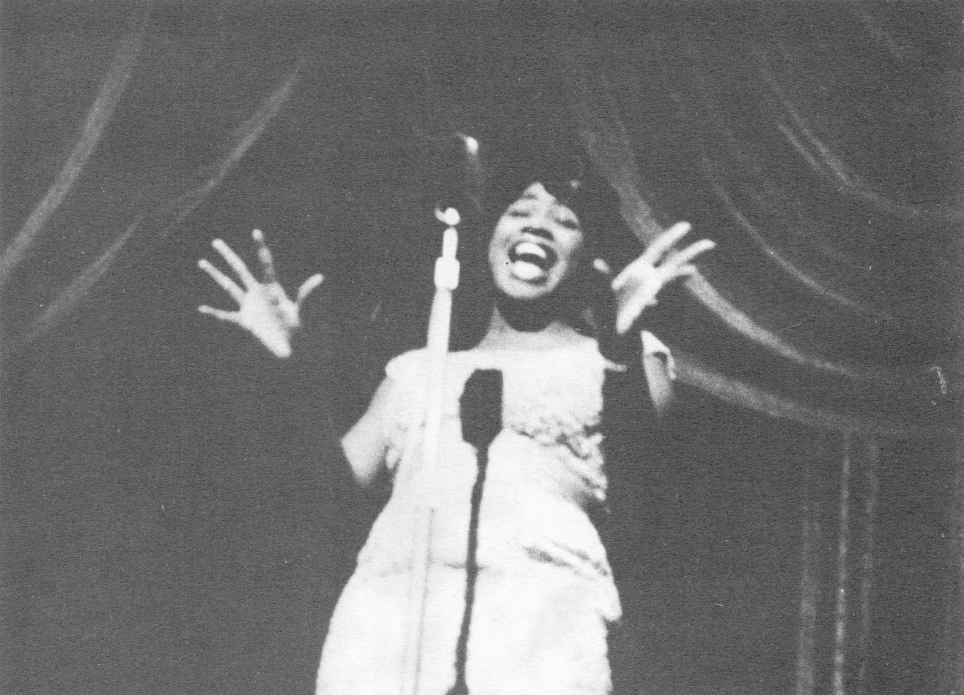
Irene Reid
Finding Jazz
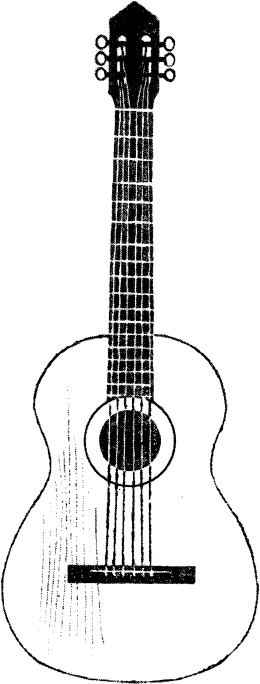
Jazz is a kind of music, a way of playing. It is not necessarily any better or worse than any other kinds of music; it is just different. So the first thing you must do, if you are to get to know and understand jazz, is to find it and identify it. This may sound rather like advice to a butterfly collector. The difficulty is this; at least half of the music you hear nowadays on radio and television and in the theatre has some jazz in it. If you doubt this, just think of the difference in flavour between any of the songs you may have learned at school from the National Song Book and, just for arguments sake, George Gershwins Summertime. The difference comes from the little pinch of jazz that went into Summertime.
It is fairly obvious then that you can have music which contains no jazz whatsoever, music which is all jazz, and, in between, music which has the ingredients mixed in different quantities. They can all bring pleasure of different kinds; but at the moment we want to try to sort out the real jazz. It is not so difficult as it may sound at first. Good jazz has a very distinctive character, and you only have to spend a short time listening to it to be able to recognize it whenever you meet it. But this is why it is so important to let someone guide you at first. The best and purest form of any sort of musicmadrigals, folk-songs, Italian opera, baroque oratoriois not necessarily the easiest to listen to, and, left to our own devices and a natural inclination to be lazy in such matters, it is only too tempting to wander off into attractive but unhelpful byways.

New Orleans
Fifty years ago most popular music (by this we mean dance music, songs and ballads, musical comedy in the theatre and also the lighter classical music) was still following a tradition which had grown up in Europe, particularly in big cities like Vienna and Paris. But just about this time, around the beginning of the twentieth century, a new musicjazzwas beginning to develop in America.
At first it was played only by a few musicians in American towns like New Orleans, and later St. Louis and Chicago, but it had about it something so appealing, so vigorous, that during the next twenty or thirty years it took over more and more of the popular music. At first the popular music-writers copied (or parodied) the music in a rather unsure way, but by now jazz has been absorbed into the popular music world, and we hear it, more or less, all around us in our dances and songs and in our theatres.
This is really what creates some of the difficulties. Because they know jazz to be there, some people have been led to lump modern popular music together as jazz (implying that that automatically makes it worthless) and leave it at that.
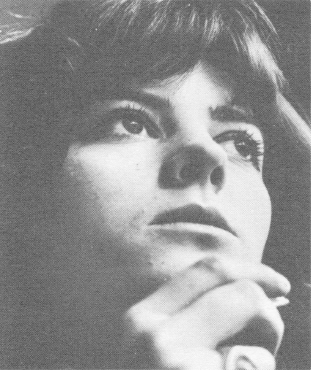

An improvised trumpet solo by Terry Brown
A lot of the music you have heard and might have been led to assume was jazzthe standard popular songs written by brilliant men like George Gershwin, Jerome Kern, Cole Porter, Richard Rodgers and Irving Berlin, the more primitive and amateur rock n roll, and all the other sounds which roar out of the juke boxescontain jazz only in various small amounts. Likewise, much of the music you hear in productions like West Side Story, Guys and Dolls and The Music Man, although it occasionally sounds very jazzy, is still only partly jazz, with the bulk of it belonging to the old European traditions of sweet and sentimental music. Jazz is never sweet and sentimental ; it is usually vigorous and realistic, but it does not follow that it is just loud and vulgar, though you will certainly be told this by people who dont want to like it.
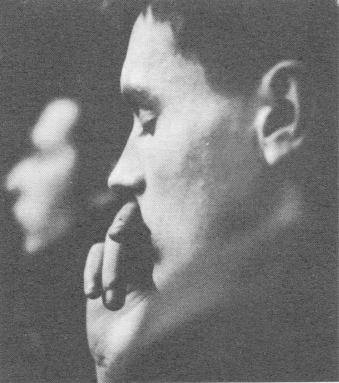
We have said that the origins of jazz were American; we have also spoken about the amount of imitation that has gone on and still goes on. What then, of British jazz? Is that not a contradiction? In some ways, yes, for even most of the bands in this country which call themselves jazz bands are really only playing, in a very professional way, a good imitation.
The chances are then, that unless you have been lucky enough to hear any of the visiting American jazz groups or soloists, the only way you could possibly hear any first-rate jazz in this country is on gramophone records. Therefore our appreciation of jazz depends a great deal upon this mechanical aid. This has always been a handicap to jazz lovers in Britain, because it can give a slightly lopsided view of various musicians and of jazz as a whole. It is natural to assume that musicians who have recorded a lot are better than those who havent; it is also tempting to suppose that the work a player has recorded happens to be his best. Jazz books talk endlessly about records because they more or less have to, but dont forget that the time a jazz musician spends in the studio making records is normally only a fraction of his working life. Yet within these limitations we can make fairly clear what we consider is the best in jazz. British jazz is important because it is at least accessible; we can hear it in the flesh which is invariably a more impressive experience than listening to a gramophone record. It also provides a very enjoyable introduction to the wider world of international and especially American jazz. But we are bound to set high standards because only the very finest Negro jazz is music of sufficient stature to set beside the best music of the classical tradition.

Sidney Bechets jazz opera New Orleans
This book ventures, fairly briefly and concisely, into the history and feel of jazz. The music has grown very quickly and already it has almost as many divisions and differences within it as classical music itself; perhaps this is why so many people have still not caught up with it and sometimes find it difficult to understand.
The Background to Jazz
The history of jazz has been written many times, and we dont want to repeat it all again here, but a little about the background of it will certainly explain why it grew up where and in the way that it did. Up until the official abolition of slavery in America in 1865 (the last slave was brought in in 1864), an uncounted number of African slaves had entered America in a steady stream. However little else they brought with them they did at least carry the memory of their musical traditions. If you have ever listened to any African music you will know it is mainly rhythmical, and mostly played on various sorts of percussion instruments, the wind instruments being somewhat primitive and not particularly important. It is well worth listening to some African music in order to understand where one of the basic ingredients of jazz comes from.

